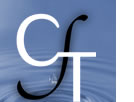 |
||||||||||
Teaching Evaluations
Joan Thompson is a tenure-track Assistant Professor of History just finishing her first year at Faraway State University, a comprehensive state school with 23,000 students. At the end of the spring term, Joan schedules an appointment with Carlos Baez (director of FSU's Center for Teaching Effectiveness) to talk about her teaching evaluations. Joan and Carlos have chatted informally at a few CTE events, but never have had a substantive conversation. The consultation begins with pleasantries, then gets down to business:
Joan: I'm glad you could meet with me so quickly-I'm pretty shaken by this whole student evaluation process.
Carlos: Yes, they can get so nasty and personal, can't they?
Joan: [with a puzzled look] Yeah, I guess so…
Carlos: Tell me some more. What exactly do the evaluations say?
Joan: Well, the ones for my big U.S. history survey are really all over the map. [She pulls out her evaluations and flips through them.] Some of my students really liked the class: "She was extremely effective in keeping my attention; she was prepared and knowledgeable." Others hated it: "So boring. I never came to class because I would just fall asleep once she started talking." And then there were the students who thought I was trying to indoctrinate them: "Focused primarily on bleeding-heart liberal aspects of history. I'm leaving this class wondering 'Gee, did Americans ever do anything good?' because we were taught only about the evils." And others think I don't know my stuff. But I have an advanced degree in this-that's why they hired me!
Carlos: Hmm… OK. I can see the complexity here. But what do the numbers say? Let's look at those. [He skims through the summary sheet.] You had about 100 students and 80 completed the evaluations, so this should be a good sample of student thinking. Hmmm…interesting. Your students rate you much higher on "effectively communicating with class" (3.62 out of 5) and "helpfulness outside of class" (3.65) than they do on "stimulating student interest in the subject" (3.12) and "how much you learned in this course" (3.26). And your scores on the key questions about the overall rating of the instructor (3.51) and of the course (3.31) are a bit under the department averages (3.92 and 3.77).
Joan: Yeah-I'm not sure exactly how to interpret all those numbers, and how to make sense of them in comparison to the comments, particularly since 80 students filled in the bubbles but only about half of those wrote any comments.
Carlos: OK. This really isn't that bad. A lot of other junior faculty who are in your position-just starting off teaching, especially in large intro lecture courses-tend to do a lot worse.
Joan: Well, I wish you'd tell my chair that! He seems to see it quite differently.
Carlos: Really? Did you talk with him about this?
Joan: No-he just fired off a hostile letter to me. [She hands him the letter.] I can't believe he's treating me like this. When he and the committee were recruiting me last year, they seemed so supportive. I don't know how to interpret the letter or the evaluations. I mean, am I in serious trouble here?
And so on….
HOME | ABOUT CFT | PROGRAMS | SERVICES | RESOURCES
Center for Teaching |
General Questions? Web Site Questions? Copyright ©2009 |
